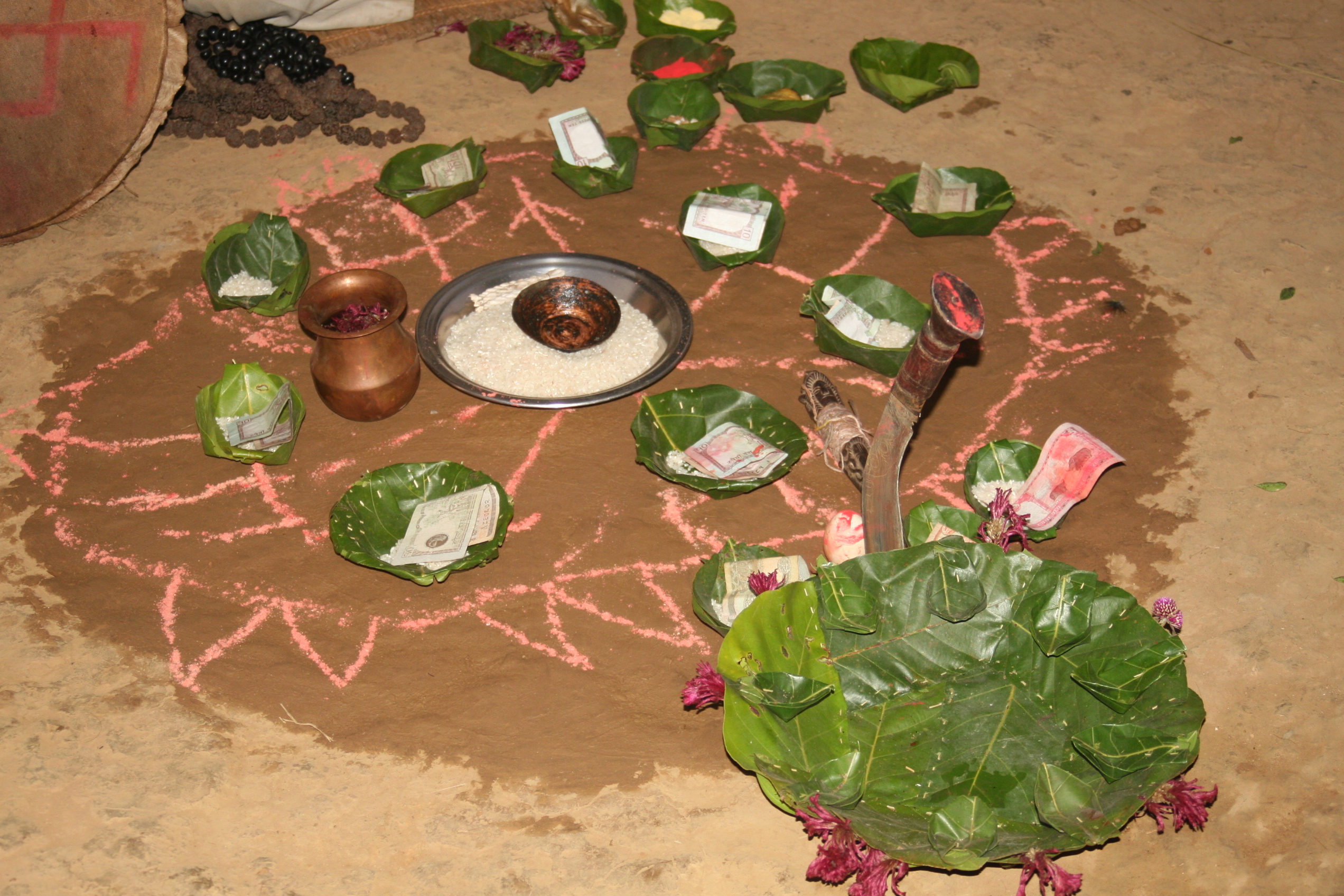Παρουσίαση/Προβολή

(52Μ028) - Diana Riboli
Περιγραφή Μαθήματος
Το μάθημα στοχεύει στην ανάλυση των θρησκευτικών/θεραπευτικών πρακτικών και πεποιθήσεων παγκοσμίως, που οι επιστήμονες ονόμασαν ‘σαμανισμός’ και του ρόλου που παίζουν στο σύγχρονο κόσμο. Στις διαλέξεις δίνεται ιδιαίτερη έμφαση στις κοσμοθεωρίες αυτόχθονων πολιτισμών και ιδιαίτερα στα πολιτισμικά και φιλοσοφικά στοιχεία που είτε βρίσκονται σε αντιπαράθεση είτε συνομιλούν –επί το πλείστον αποκτώντας μια κριτική στάση- με την φιλελεύθερη λογική. Μέσα σε αυτό το πλαίσιο, αναλύονται οι σχέσεις του σαμανισμού με την βιοϊατρική, τις καθιερωμένες θρησκείες, την αναζήτηση δικαιωμάτων των μειονοτήτων, καθώς και τις αντιλήψεις περί υπερθέρμανσης του πλανήτη και περιβαλλοντικών καταστροφών.
ΕΝΔΕΙΚΤΙΚΗ ΒΙΒΛΙΟΓΡΑΦΙΑ
Alberts, Thomas Karl (2015). Shamanism, Discourse and Modernity. Farnham, UK: Ashgate Publishers.
Bacigalupo, Ana Mariella (2016). Thunder Shaman. Making History with Mapuche Spirits in Chile and Patagonia. Austin: University of Texas Press.
Balzer, Marjorie Mandelstam (1999). The Tenacity of Ethnicity. A Siberian Saga in Global Perspective. Princeton: Princeton University Press.
Buyandelger, Manduhai (2013). Tragic Spirits: Shamanism, Memory and Gender in Contemporary Mongolia. Chicago: University of Chicago Press.
Danowski, Deborah & Viveiros de Castro, Eduardo (2016). The Ends of the World, New York: Polity Publisher.
Descola, Philippe (2013), Beyond Nature and Culture, Chicago: University of Chicago Press.
Desjarlais, Robert R. (1992). Body and Emotion. The Aesthetics of Illness and Healing in the Nepal Himalayas. Philadelphia: University of Pennsylvania Press.
Fausto, Carlos (2012). Warfare and Shamanism in Amazonia. Cambridge: Cambridge University Press.
Harvey, Graham (ed.) (2003). Shamanism: A Reader. London: Routledge.
Jokić, Željko (2015). The Living Ancestors. Shamanism, Cosmos and Cultural Change among the Yanomami of the Upper Orinoco. New York & Oxford: Berghahn.
Kendall, Laurel (2009). Shamans, Nostalgia, and the IMF: South Korean Religion in Motion. University of Hawaii Press.
Kohn, Eduardo (2013). How Forests Think: Toward and Anthropology beyond the Human. Berkeley: University of California Press.
Kopenawa, Davi & Albert Bruce (2013). The Falling Sky: Words of a Yanomami Shaman. Cambridge, MA: The Belknap Press of Harvard University Press.
Narby, Jeremy and Huxley, Francis (eds.) (2001). Shamans Through Time: 500 Years on the Path to Knowledge. NewYork:Putnam.
Riboli, Diana καιTorri, Davide (eds.) (2013). Shamanism and Violence. Power, Repression and Violence in Indigenous Religious Conflicts. Ashgate: Farnham, UK
Riboli, Diana (2014). Consciousness and Indigenous Healing Systems. Between Indigenous Perceptions and Neuroscience. New York: Nova Publishers, (Open Access: www.novapublishers.com/catalog/product_info.php?products_id=50830)
Riboli, Diana(2008 [2000]). Tunsuriban. Μια Ανθρωπολογική Μελέτη του Σαμανισμού των Chepangτου Νοτίου και Κεντρικού Νεπάλ. Αθήνα: ΕκδόσειςΠαπαζήση:.
Taussig, Michael (1987). Shamanism, Colonialism, and the Wild Man. A Study in Terror and Healing. Chicago and London: The University of Chicago Press.
Vitebsky, Piers (2017). Living without the Dead. Loss and Redemption in a Jungle Cosmos.Chicago: The University of Chicago Press.
Vitebsky, Piers (1993). Dialogues with the Dead: The Discussion of Mortality among the Saora of Eastern India.Cambridge & New York: Cambridge University Press.
Viveiros de Castro, Eduardo (2017). Cannibal Metaphysics: for a Post-structural Anthropology. Minneapolis, MN: University of Minnesota Press.
Viveiros de Castro, Eduardo (1992). From the Enemy’s Point of View. Humanity and Divinity in an Amazonian Society. Chicago: The University of Chicago Press.
Whitehead, Neil L. (2002). Dark Shamans. Kanaimà and the Poetics if Violent Death. Durham and London: Duke University Press.
Znameski, Andrei A. (2007). The Beauty of the Primitive. Shamanism and the Western Imagination.Oxford University Press, Oxford.
Ημερομηνία δημιουργίας
Τρίτη 9 Οκτωβρίου 2018
-
Δεν υπάρχει περίγραμμα
